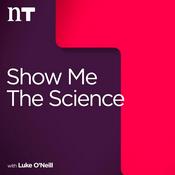Penn‘s Exchange: Markets & Cooperation

31 episodes

Robbie Mochrie on How to Think like an Economist
27/9/2024 | 38 mins.
The questions of what economics is and the role of an economist have long been at the heart of the profession, igniting extensive debate about the nature, scope, potential, and limitations of the discipline. Today, we’ll take a historical approach to these issues, exploring how past thinkers—ranging from Aristotle and Aquinas to Adam Smith and the latest Nobel Prize winners in economics—have defined and approached the study of economics.

Oliver Volckart on how Germany created its first common currency in the 16th century
22/7/2024 | 34 mins.
The concept of a monetary union today implies a multilateral entity that centralizes the emission of a common currency shared by multiple countries. This arrangement provides benefits, such as lower transaction costs, but poses challenges, especially without a complete fiscal union, which can create perverse incentives. However, monetary issues are not new; they have been a consistent aspect of human organizations throughout history. Today, we will discuss how the politically fragmented German lands under the Holy Roman Empire established a common currency in the sixteenth century and examine the debates surrounding its perceived success or failure.

Francisco Bethencourt on the History of the New Christian Trading Elite in the Early Modern Period
13/6/2024 | 59 mins.
In 1492, Spain's Alhambra Decree forced Jews to convert to Christianity or face expulsion, leading many to become conversos. Portugal issued a similar edict in 1496. Driven by a desire for religious homogeneity, these measures led to persistent discrimination based on Jewish ancestry. How did this new group of New Christians defend their interests and thrive in economic and social spheres, building connections with Europe, Africa, and the Americas? Today, we talk with Dr. Bethencourt about his new book, "Strangers Within: The Rise and Fall of the New Christian Trading Elite."

Marc Palen on Pax Economica and the Left-Wing visions of a free trade world
08/5/2024 | 56 mins.
In today's political discussions, the endorsement of free trade is commonly linked with perspectives that lean toward the right side of the spectrum. However, it's crucial to recognize that the roots of free trade and classical liberalism extend beyond contemporary left-right divides. As a result, the promotion of free trade has profoundly impacted modern ideologies across the political spectrum. Originating as a response to the imperialist and mercantilist policies of the early 19th century, the ideals of free trade possess a profound intellectual legacy intertwined with the narratives of historical social radicals, feminists, and pacifists. Joining us today is Marc Palen, author of "Pax Economica: Left-Wing Visions of a Free Trade World," who will delve into the themes explored in his recent publication.

Mark Koyama on the Economics of Dune and Science Fiction Worlds
25/3/2024 | 51 mins.
Sci-fi builds alternative realities from current science, spanning space travel, AI, genetics, and quantum mechanics. Its appeal lies not only in scientific accuracy but also in the constraints it imposes on characters within these worlds. Audiences are drawn to the social questions it poses, exploring diverse societies, cultures, and interpersonal dynamics. Themes delve into human behavior, societal structures, power dynamics, and the impacts of technology. Mark will explore how social science influences sci-fi narratives and the insights they offer through a discussion of one of the most important pieces of science fiction: Dune.
More Science podcasts
Trending Science podcasts
About Penn‘s Exchange: Markets & Cooperation
Listen to Penn‘s Exchange: Markets & Cooperation, Hidden Brain and many other podcasts from around the world with the radio.net app

Get the free radio.net app
- Stations and podcasts to bookmark
- Stream via Wi-Fi or Bluetooth
- Supports Carplay & Android Auto
- Many other app features
Get the free radio.net app
- Stations and podcasts to bookmark
- Stream via Wi-Fi or Bluetooth
- Supports Carplay & Android Auto
- Many other app features


Penn‘s Exchange: Markets & Cooperation
download the app,
start listening.































